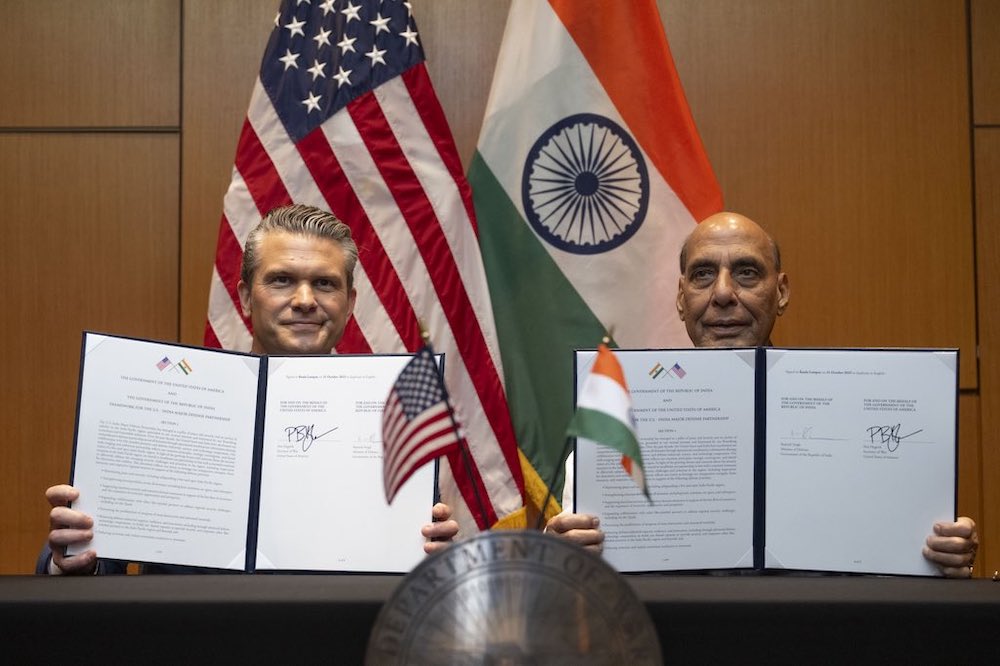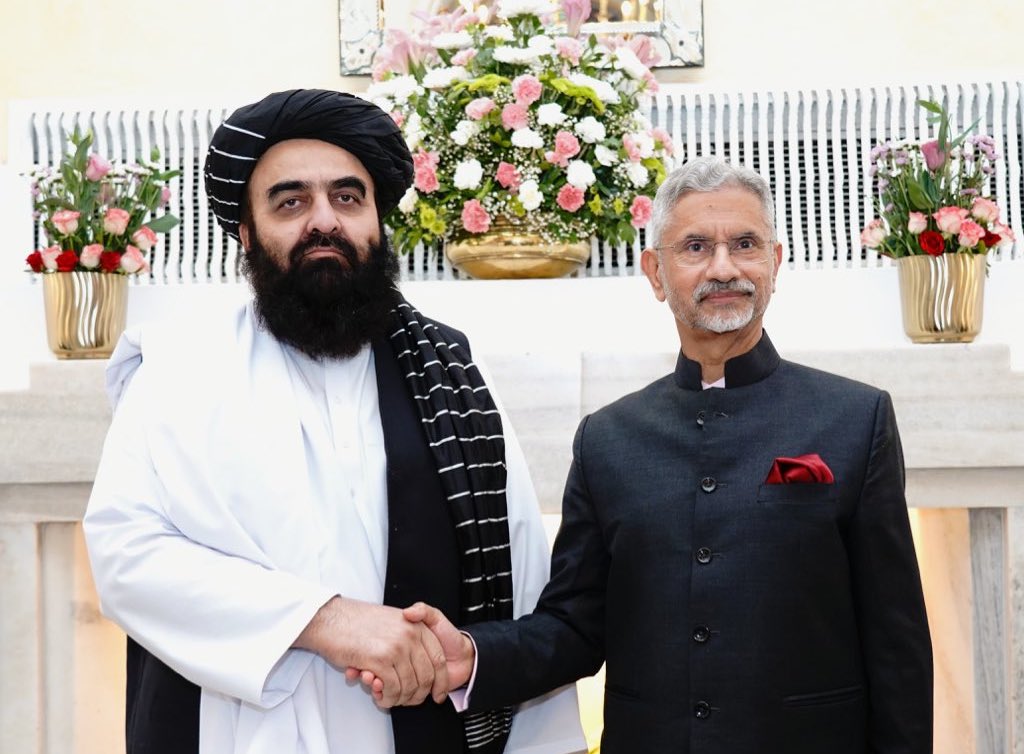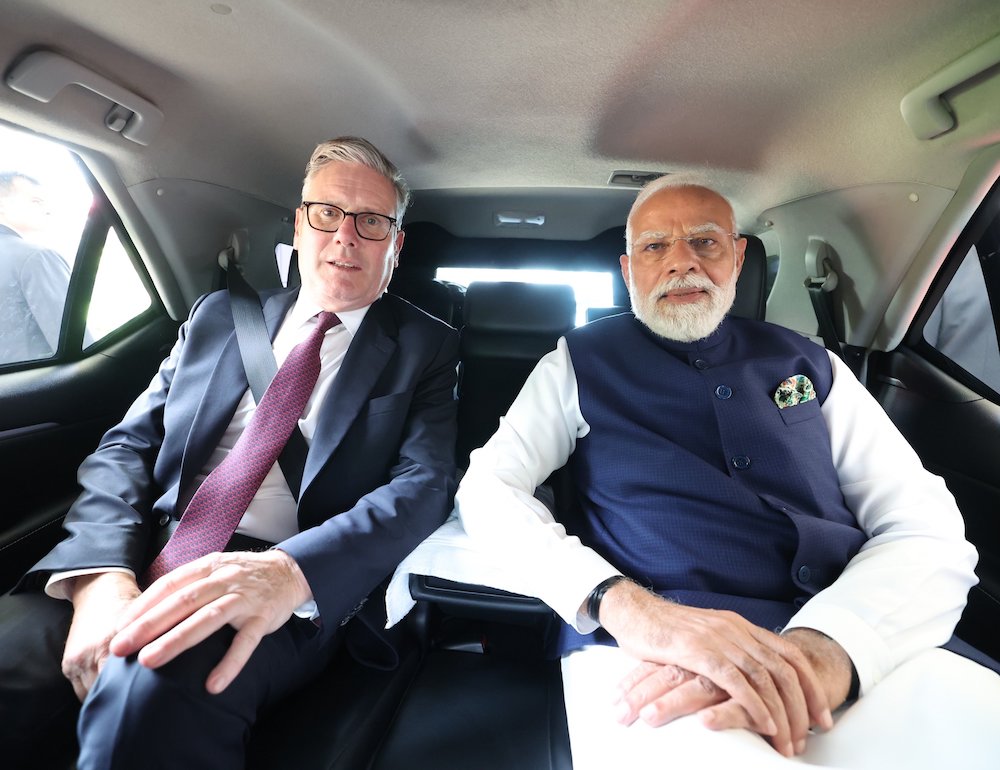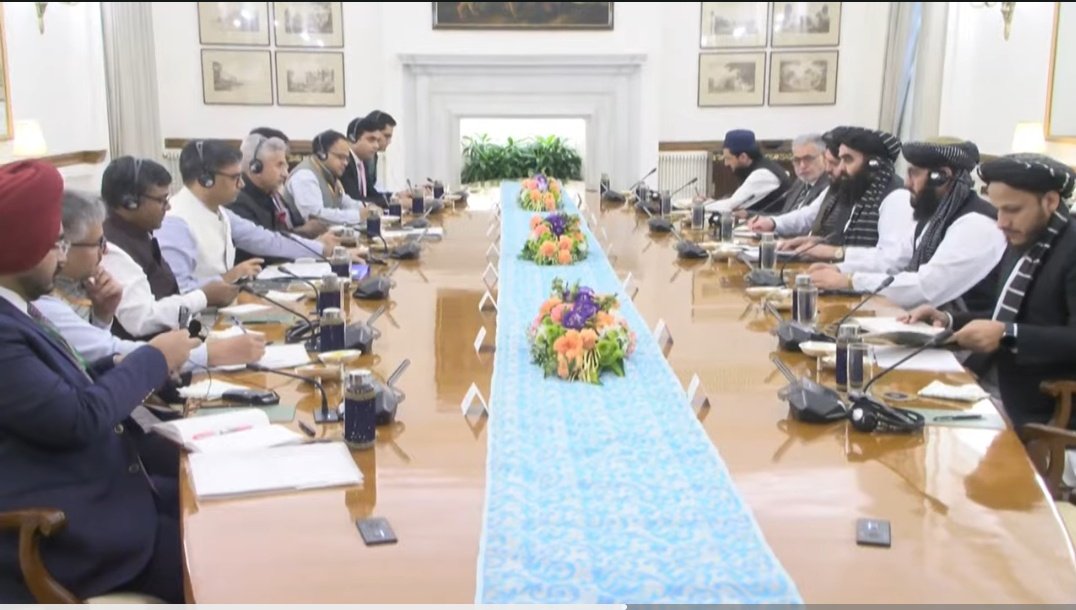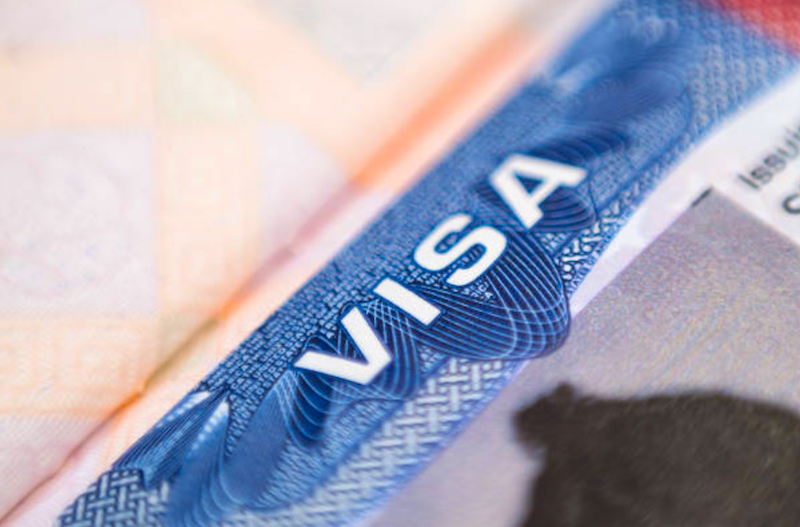 Sultan Haitham bin Tariq (L), President Droupadi Murmu (C), and Prime Minister Narendra Modi (R). (Photo: Rashtrapati Bhavan)
Sultan Haitham bin Tariq (L), President Droupadi Murmu (C), and Prime Minister Narendra Modi (R). (Photo: Rashtrapati Bhavan)
New Delhi: Oman’s sultan, Haitham bin Tariq, who arrived in the national capital on a three-day visit to India, on Friday, was accorded a warm reception at the forecourt of Rashtrapati Bhavan by the president, Droupadi Murmu, on Saturday, along with the prime minister, Narendra Modi. The sultan then inspected a triservices guard of honour.
After the ceremonial reception, the Omani sultan and the Indian prime minister met at the Hyderabad House in the capital, where they held bilateral talks. Modi also hosted a luncheon in the honour of Haitham.
Before their talks, the prime minister made opening remarks on the strong ties between India and Oman. Speaking in Hindi, he said India and Oman have had an “unbreakable bond of deep friendship” for centuries. He added that the mutual closeness between the two countries is not limited to geography, but the closeness is also seen in how the two countries traded with each other for thousands of years, had shared culture and common priorities.
On further strengthening the ties between the two countries from here, Modi said, “Today we are adopting a new ‘India-Oman Joint Vision – A Partnership for Future’. In this Joint Vision, concrete action points have been agreed upon on 10 different areas. I am confident that this joint vision will give a new and modern shape to our partnership.”
The prime minister also mentioned a India-UAE Comprehensive Economic Partnership Agreement-type agreement with Oman, which is currently being worked out.
Modi said, “I am glad that discussions on the CEPA agreement are ongoing between the two sides. Two rounds of these talks have been successfully completed in which consensus has been reached on many important issues. I hope that we will be able to sign this agreement soon, which will add a new chapter to our economic cooperation.”
India-Oman MoUs and agreement
Four memorandums of understanding (MoUs) and one agreement were also signed between the two countries by officials from both sides. The MoUs signed include cultural exchange and cooperation, cooperation on communications and information technology, cooperation on sharing financial intelligence related to money laundering and terror funding, and establishing an Indian Council for Cultural Relations (ICCR) Chair of Indian Studies-Hindi Language at the Dhofar University in Oman.
The agreement signed allows accompanying persons of official employees to be gainfully employed in each other’s countries.
India-Oman joint vision document
Later, the two countries adopted a joint vision document titled “A partnership for the future”. The vision statement acknowledged the synergy between “Oman Vision 2040” and India’s development objectives under “Amrit Kaal”.
It identifies a range of areas such as maritime cooperation and connectivity, energy security and green energy, space, technologies, and applications, digital payments and financial cooperation, trade and Investment, health, tourism and hospitality, IT & innovation, as well as agriculture and food security with specific action points as part of the future roadmap to deepen ties between both countries for implementation.
The two leaders expressed confidence that the document will act as a roadmap for strengthening bilateral cooperation in diverse areas and will scale up the India-Oman partnership to new heights.
Both Modi and Haitham noted the significant growth in bilateral trade, which more than doubled from $5.4 billion in 2020-21 to $12.3 billion in 2022-23.
Commemorative postage stamp released
On the sidelines of the Oman sultan’s visit, an India-Oman joint commemorative postage stamp was released symbolizing the long-standing cultural and people-to-people relationship between the two countries. The stamp depicts traditional folk dances, artfully showcasing the cultural heritage of India and Oman.
Cooperation fighting terror
The two leaders strongly condemned terrorism in all its forms, without exception. They agreed that there can be no justification for any act of terror, regardless of the reason. They pledged to work together more closely to fight terrorism and emphasized the importance of promoting universal values, such as peace, moderation, tolerance, and coexistence. They also highlighted the need to reject all forms of violent extremism.
The leaders also discussed regional and international issues of mutual concern. Both sides expressed a strong commitment to supporting efforts that promote peace and stability around the world and in the region.
India and Oman stressed the importance of all countries following international law, respecting the sovereignty and territorial integrity of all nations, refraining from interfering in the internal affairs of other countries, and resolving conflicts peacefully through dialogue and diplomacy.





